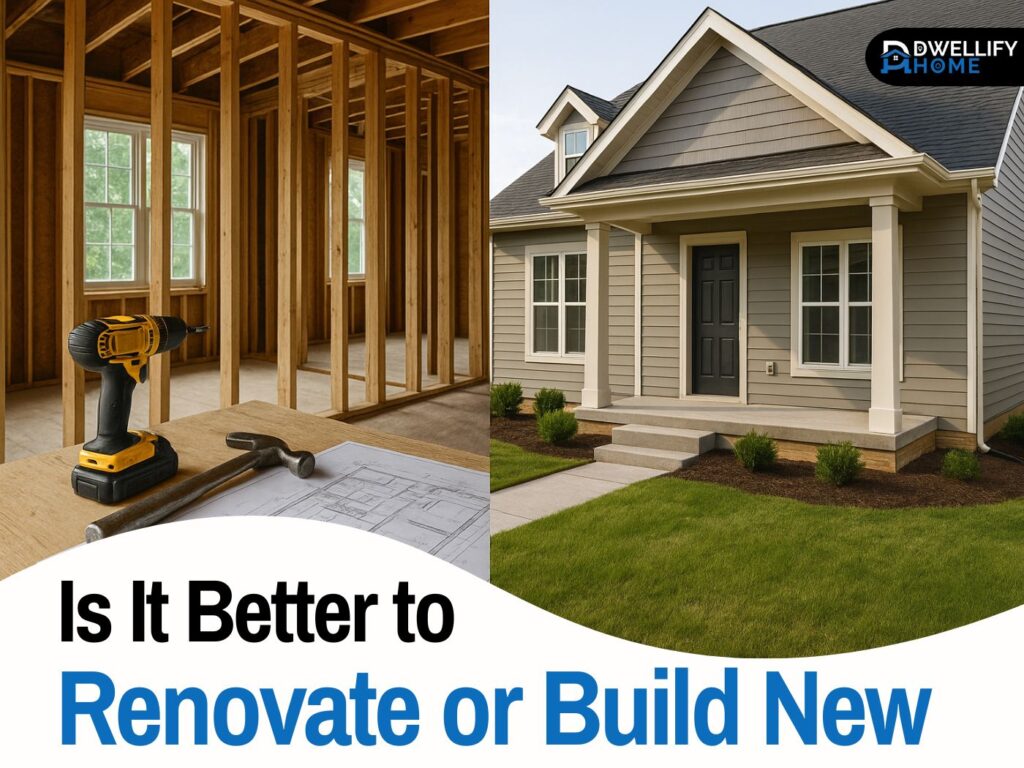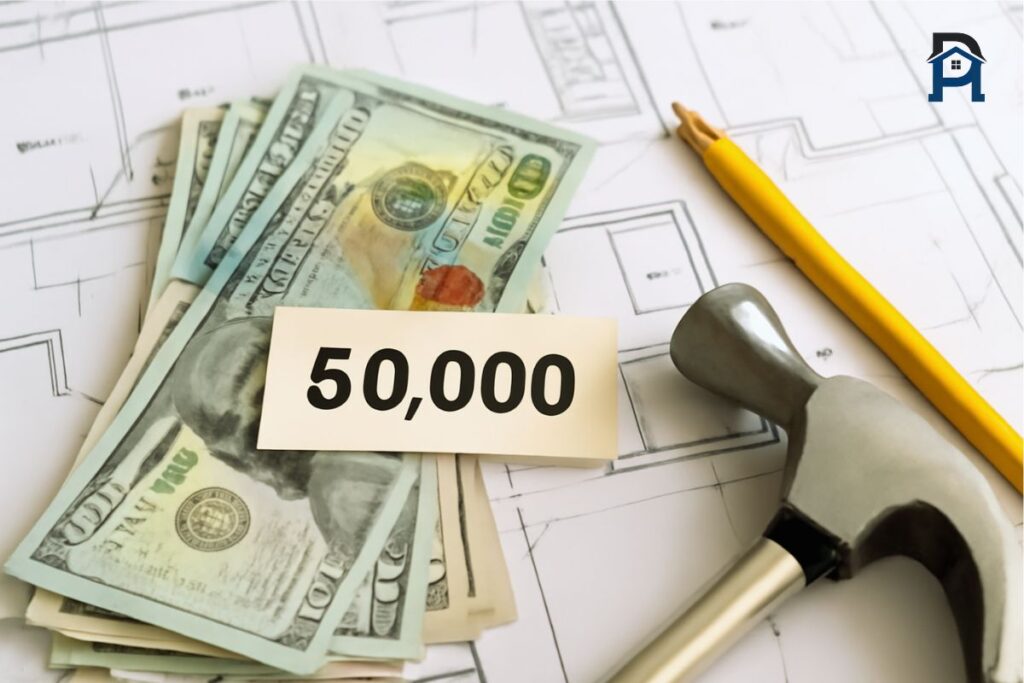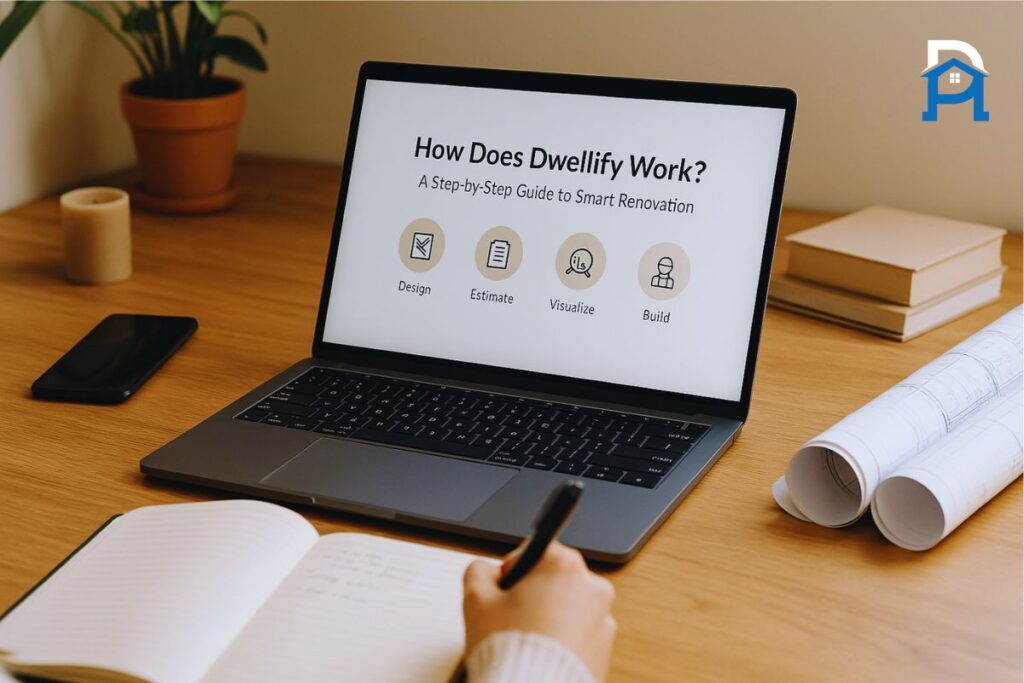Here’s the thing: almost every homeowner hits this crossroad at some point. You look at your old kitchen cabinets falling apart, or you walk into that drafty living room and wonder — should I just fix this place up, or would it be smarter to start fresh and build a new home?
It’s not a simple yes-or-no answer. Renovating can save money and keep you in the neighborhood you love, but building new gives you total freedom to design your dream space. The big question — is it better to renovate or build new — depends on your budget, timeline, emotional ties, and long-term goals.
Snippet-Ready Explanation
Deciding whether to renovate or build new depends on budget, structure, and lifestyle goals. Renovation keeps charm and location, while a new build offers full customization, efficiency, and modern comfort.
In this guide, I’ll walk you through every angle: costs, pros and cons, expert advice, and even real-life examples. By the end, you’ll have a clear framework to decide what’s best for you and your family.
Mission Statement
Our mission is to guide homeowners with honest, practical, and expert-backed advice about renovation and construction. We believe every family deserves to make informed decisions that balance budget, comfort, and long-term value.
Core Decision Factors to Guide You
Before you decide, it helps to break things down into the major factors that really matter. Think of it like a checklist you can use as a compass.
Budget & Cost Comparisons
Money is usually the deal-breaker. Renovation often sounds cheaper, but big surprise — it can sometimes cost more than building new. If you’re wondering is it cheaper to build or renovate a house, the truth is: it depends. A minor kitchen remodel may cost $30,000, while a full gut renovation of a 1,500 sq ft house can run $150,000–$250,000. On the flip side, building new might cost $150–$400 per square foot, depending on where you live.
Structural Condition & “Good Bones”
Does your house have strong bones — a solid foundation, roof, and structure? If yes, renovation is usually worth it. If not, rebuilding may save you endless headaches. I once worked with a client whose 1950s home looked charming but had hidden termite damage. Renovating would’ve been like patching a sinking ship, so a rebuild was the smarter move.
Location & Land Value
Guess what? Sometimes it’s not about the house at all — it’s about the land. If you love your neighborhood, school district, and commute, renovating keeps you rooted. But if your area’s land value is skyrocketing, building new can maximize resale value.
Timeline & Project Disruption
Renovations can drag on with surprises: mold behind the drywall, outdated wiring, or hidden plumbing issues. But new builds aren’t exactly fast either — permits, approvals, and construction can take 12–18 months. Ask yourself: do you need a quicker fix, or can you handle waiting?
Design Flexibility & Customization
Renovating means working around existing walls and layouts. New builds? Total freedom. Want a modern open-concept living area with energy-efficient windows and radiant floor heating? A new build makes it possible.
Regulations, Permits & Zoning
Building codes and permits can add unexpected costs. Renovations may require updates to meet current safety codes, while new builds involve zoning laws, inspections, and approval delays.
Emotional & Heritage Value
Some homes carry memories. Renovating your grandparents’ house or restoring a historic property isn’t just about money — it’s about preserving legacy. If sentiment matters, renovation wins hands down.
Renovation – Pros, Cons & Best Use Cases
Renovating your home is like giving it a new lease on life. But let’s be real: it comes with both perks and risks.
Advantages of Renovation
- Cost savings (sometimes): Renovation can be cheaper if you’re only doing cosmetic changes.
- Location stability: You keep your neighborhood, your kids’ school, your commute.
- Charm & character: Think original hardwood floors, exposed beams, or historic details.
Here’s a tip: If your project is mostly cosmetic (paint, flooring, cabinets), renovation almost always wins.
Risks & Hidden Costs
This is where homeowners often get shocked. A simple bathroom remodel can spiral when you find outdated plumbing. Full gut renovation cost (like those on Reddit threads) often jumps 20–30% higher than initial estimates. So, budget extra for surprises.
Design & Layout Limitations
You can only move so many walls before you hit structural or zoning issues. For example, you might want an open kitchen but the load-bearing wall in the middle says otherwise.
When Renovation Makes the Most Sense
- You love your neighborhood.
- Your house has strong bones.
- Your updates are mostly cosmetic.
- You own a historic or architecturally unique property.
And here’s a pro move: Consider a phased renovation strategy. Instead of tackling everything at once, upgrade one section at a time — kitchen this year, bathrooms next year. It’s less disruptive and easier on your wallet.
Building New – Benefits, Challenges & Hybrid Options
Sometimes, starting fresh is the only way to go. Let’s explore why.
Advantages of Building New
- Total customization: Every room is designed for you.
- Energy efficiency: Modern homes can cut utility bills by 30–50%.
- Fewer hidden problems: No surprises with asbestos or faulty wiring.
- Better resale value: Buyers often pay more for newer homes.
I helped a family who dreamed of a solar-powered home with a smart HVAC system. Renovating their old ranch would’ve cost a fortune. A new build gave them exactly what they wanted.
Challenges & Pitfalls
- High upfront costs: Expect $200–$400 per sq ft in many regions.
- Longer timelines: New builds often take a year or more.
- Financing hurdles: Construction loans aren’t as simple as mortgages.
Hybrid & Partial Rebuilds
Here’s something homeowners overlook: the hybrid renovation new build. Sometimes you can tear down part of the house while preserving sections with character. It’s cheaper than a full rebuild and less disruptive than endless renovations.
When a New Build is the Better Choice
- Your house has major structural damage.
- You need a layout overhaul that renovation can’t deliver.
- You want long-term energy performance and sustainability.
Cost & Financial Comparison – The Numbers That Matter
Alright, let’s talk money.
Is It Cheaper to Build or Renovate?
This is the million-dollar (literally) question. According to industry data:
- Remodeling a 2,000 sq ft house: $100,000–$300,000 depending on finishes.
- Cost to gut and remodel a 1,500 sq ft house: $150,000–$250,000.
- Building new: $300,000–$700,000 for the same size, depending on region.
So, is it cheaper to build or renovate? Renovation usually wins for smaller projects. But large-scale gut jobs often come close to new build costs.
Hidden Costs & Budget Overruns
Always expect 15–20% over budget for renovation. For new builds, delays and material costs can push expenses up too.
ROI & Resale Value
Renovated homes in prime locations often sell fast. But a modern, energy-efficient new build usually commands higher resale prices.
Financing, Grants & Incentives
Some states offer energy efficiency tax credits for renovations. New builds may qualify for green building grants. Ask your contractor or local authority — these perks can save you thousands.
Energy, Sustainability & Long-Term Performance
If you care about long-term savings and the planet, this section’s for you.
- Renovation: You can add insulation, energy-efficient windows, and solar panels, but retrofitting is limited.
- New build: You can design the entire house around sustainability — better insulation, smart systems, low-energy appliances.
Here’s a fact: A new home built to 2025 energy codes can reduce heating/cooling costs by up to 40%. But, remember embodied carbon — tearing down an old home adds environmental cost. Sometimes renovating is greener simply because you’re reusing materials.
Expert Insights & Professional Guidance
Here’s a mistake I see all the time: homeowners skip expert evaluations.
- Always hire a structural engineer before deciding on renovation.
- Use an architect for new builds or hybrid projects.
- Get multiple contractor bids — costs vary widely.
And don’t forget building codes & permit costs. In California, for example, fees alone can reach tens of thousands.
Decision Framework & Real-Life Scenarios
Let’s simplify your decision:
- Choose Renovation If:
- You love your neighborhood.
- Your house has strong bones.
- Your updates are mostly cosmetic.
- Choose New Build If:
- Your home has major structural issues.
- You want total design freedom.
- Energy performance is a top priority.
On Reddit homebuilding forums, homeowners often share case studies. One user gutted a 1,500 sq ft home only to spend more than building new. Another updated their historic Victorian for less than half the price of starting fresh.
Local & Regional Realities
Costs aren’t the same everywhere.
- In California, renovation can be better due to land costs, but building new often wins if seismic upgrades are needed.
- In rural areas, new builds are cheaper because land is plentiful.
- Always consider climate — a snowy region may need expensive insulation upgrades, while a hot, humid climate may require better cooling systems.
Comparison Table: Renovate vs Build New
| Factor | Renovate | Build New |
| Cost | Usually cheaper for cosmetic changes. Can rise for full gut jobs. | Higher upfront cost, but predictable. |
| Timeline | Faster for small projects; delays common if hidden issues found. | Longer (12–18 months) but structured. |
| Customization | Limited by existing structure/layout. | Total freedom in design & layout. |
| Energy Efficiency | Can improve but limited by old systems. | Modern energy-efficient features built-in. |
| Heritage Value | Preserves historic details & character. | Removes old charm, starts fresh. |
| Resale Value | Strong if in a great location. | High if market favors new homes. |
Step-by-Step Guide: How to Decide
- Get an inspection – Understand your home’s true condition.
- Compare costs – Get estimates for both renovation and new build.
- Factor lifestyle needs – Location, family size, design goals.
- Think long-term – Energy bills, maintenance, resale value.
- Consult experts – Architect, contractor, and structural engineer.
FAQs
What is the 30% rule in home renovation?
The 30% rule suggests you should not spend more than 30% of your home’s value on renovations. It helps ensure you don’t overinvest compared to resale value.
What are the disadvantages of renovation?
Renovations often reveal hidden issues like mold, asbestos, or faulty wiring. They can cause delays, budget overruns, and sometimes don’t allow major layout changes.
What is the most expensive thing when renovating a house?
Structural changes (like moving load-bearing walls), roofing, plumbing, and foundation repairs are usually the most expensive parts of renovation projects.
Is it better to remodel or buy a new house in 2025?
In 2025, it depends on your market. Remodeling is better if you love your location and your house has good bones. Buying new is smarter for full customization and energy efficiency.
How much does it cost to gut and remodel a 1500 square foot house?
A full gut remodel of a 1,500 sq ft house typically costs $150,000–$250,000, depending on location, materials, and finishes.
Can 100k remodel a house?
Yes, but it depends on the scope. $100k can cover cosmetic upgrades or partial renovations in many regions, but not a full gut renovation.
What is illegal renovation?
Illegal renovation means work done without the required permits or against local building codes. It can lead to fines, unsafe structures, or trouble selling later.
Can you renovate a house for 50K?
Yes, but it’s usually limited to smaller updates like painting, flooring, or a partial kitchen/bath remodel. Full house renovations generally cost much more.
Conclusion: How to Choose Wisely
So, is it better to renovate or build new? The truth is, there’s no universal answer.
Renovating is often smarter if your home’s structure is solid, you love your location, and you’re mainly doing cosmetic changes. Building new is worth it if your current home has major issues, you crave customization, or you want the highest energy performance.
Here’s my advice:
- Get an honest inspection of your current home.
- Run cost estimates for both renovation and new build.
- Think long-term — not just what’s cheaper now, but what gives more value in 10–20 years.
At the end of the day, this isn’t just a financial decision. It’s about your lifestyle, your goals, and how you want to live. If you approach it with clear numbers and a bit of heart, you’ll make the choice that truly feels right.
Disclaimer
This article is for informational purposes only. Costs and examples are estimates and may vary by location, contractor, and project size. Always consult licensed professionals before making renovation or construction decisions.

I’m Bilal, the founder of Dwellify Home. With 6 years of practical experience in home remodeling, interior design, and décor consulting, I help people transform their spaces with simple, effective, and affordable ideas. I specialize in offering real-world tips, step-by-step guides, and product recommendations that make home improvement easier and more enjoyable. My mission is to empower homeowners and renters to create functional, beautiful spaces—one thoughtful update at a time.




